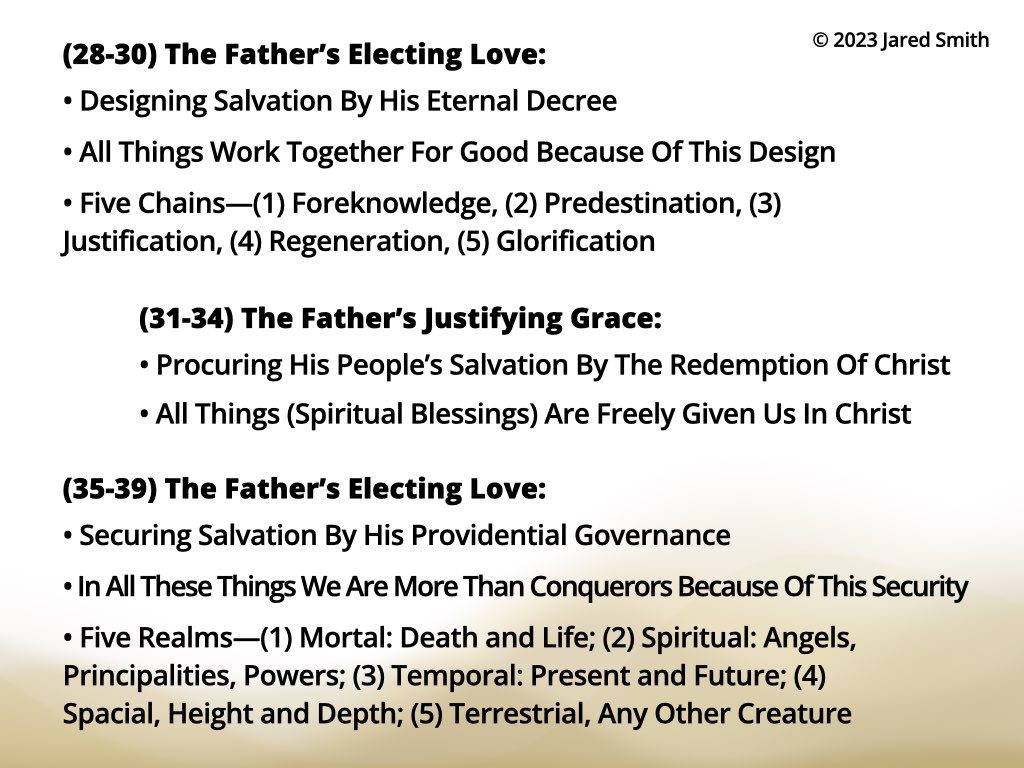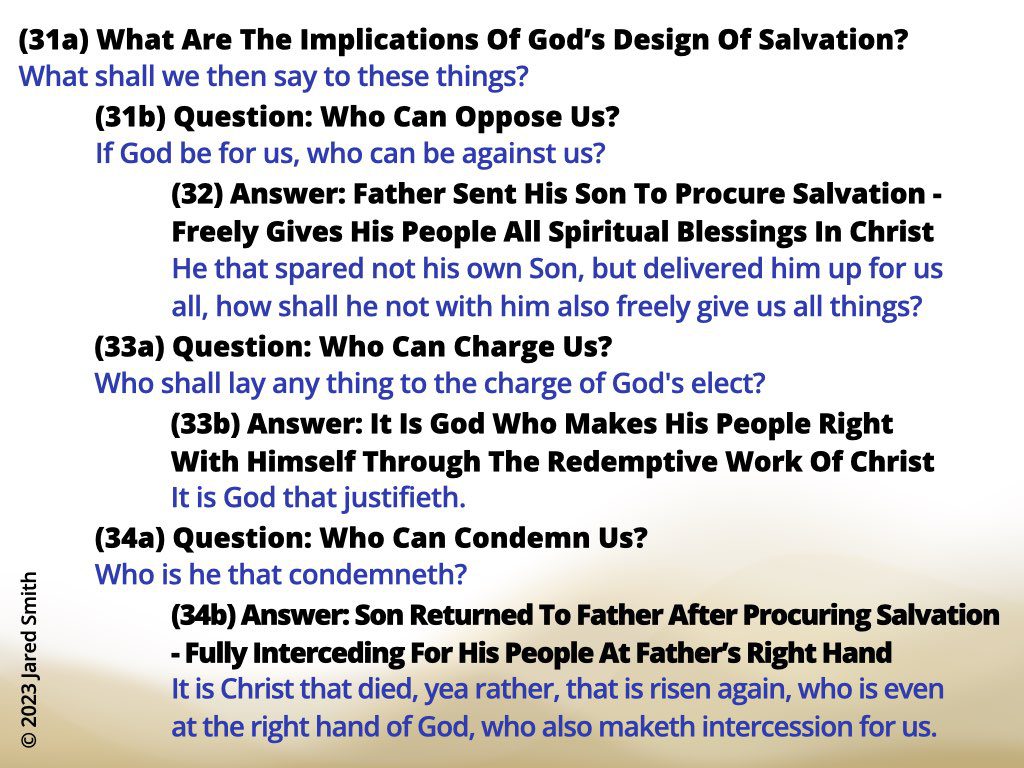Study 12: The Certainty Of God-Justification
[Having not the time to prepare a transcript for this teaching video, I submit the short notes used at the recording desk—Jared Smith]
• Previous study—(1) The unregenerate sinners, under the authority of the covenant of works, attempt to atone for their sins by earning favor with God through self-justification;
• This Study—(2) The regenerate sinners, under the authority of the covenant of grace, have their sins atoned for by Christ through God-justification. Looking at the CERTAINTY of God-Justification (Romans 8:28-39).
• Subject of God-Justification dealt with by Paul in Romans (3:19-5:21), from standpoint of the Son’s role in work of salvation; dealt with again in (8:28-39), from standpoint of Father’s role in work of salvation. Christ is the Author of REDEMPTION; Father is the Author of JUSTIFICATION. Father freely JUSTIFIES the sinner through the REDEMPTION that is in Christ Jesus.
• EXPOUND TEXT—ROMANS 8:28-39

• A group of sovereign grace Baptists promulgate a strange doctrine that God predestinates only the work of salvation for sinners, but nothing else which comes to pass in time—they believe the “all things” of verse 28 refer only to the five things highlighted in verses 29,30 (foreknowledge, predestination, regeneration, justification and glorification). However, it is quite clear the “all things” of verse 28 refer to “all these things” in verses 35-39, therefore including everything which comes to pass in time.
• Verses 31-34 is the heart of the passage, around which verses (28-30) and (35-39) revolve
• EXPOUND TEXT—ROMANS 8:31-34

• The certainty of a sinner’s justification is guaranteed by the Father sending His Son to redeem him/her from the curse of the law, after which the Son returning to the Father making intercession for them
• God-Justification is not conditioned on the sinner’s faith—the sinner is freely justified by the redemption that is in Christ Jesus, the work of which is pledged by the Son from eternity (under the terms and promises of the covenant of grace), at which point He becomes the sinner’s surety and the Father justifying him/her on that basis
• The idea of a universal atonement, whether in reality (as put forth by the Arminians) or hypothetically (as put forth by the Moderate(Modified)-Calvinists), is a perversion of the gospel and dishonoring to the Father and the Son
• The atonement of Christ, together with the full scope of His redemptive work, is specially designed and particularly procured for the elect alone—it is this which makes the sinner’s justification certain (”I am the good Shepherd, and know My sheep…and I lay down My life for the sheep”; “such as should be saved”)
Jared Smith served twenty years as pastor of a Strict and Particular Baptist church in Kensington (London, England). He now serves as an Evangelist in the Philippines, preaching the gospel, organizing churches and training gospel preachers.
Jared Smith on Eldership
Jared Smith on the Biblical Covenants
Jared Smith on the Gospel Law
Jared Smith on the Gospel Message
Jared Smith on Various Issues
Jared Smith, Covenant Baptist Church, Philippines
Jared Smith on Bible Doctrine
Jared Smith on Bible Reading
Jared Smith's Studies in Romans
Jared Smith's Hymn Studies
Jared Smith's Maternal Ancestry (Complete)
Jared Smith's Sermons




